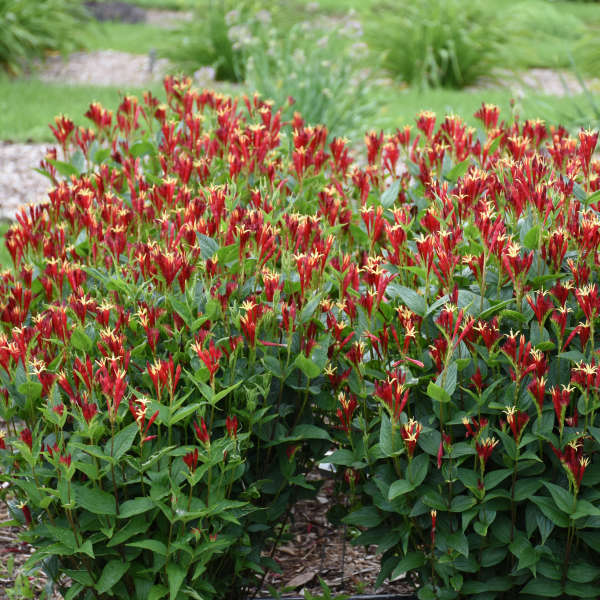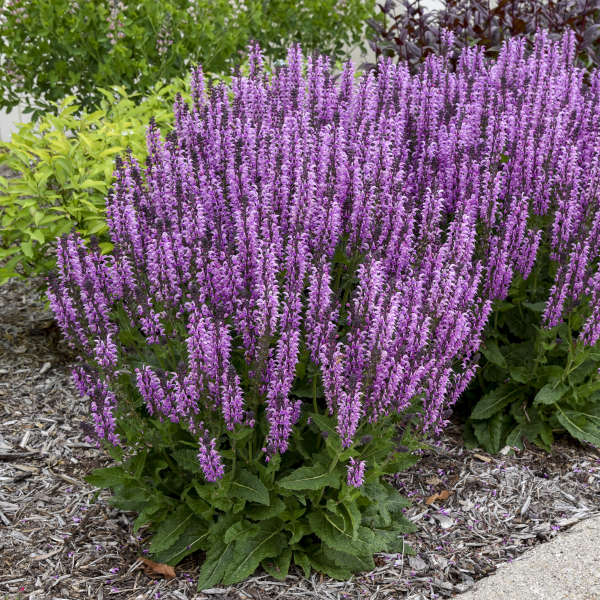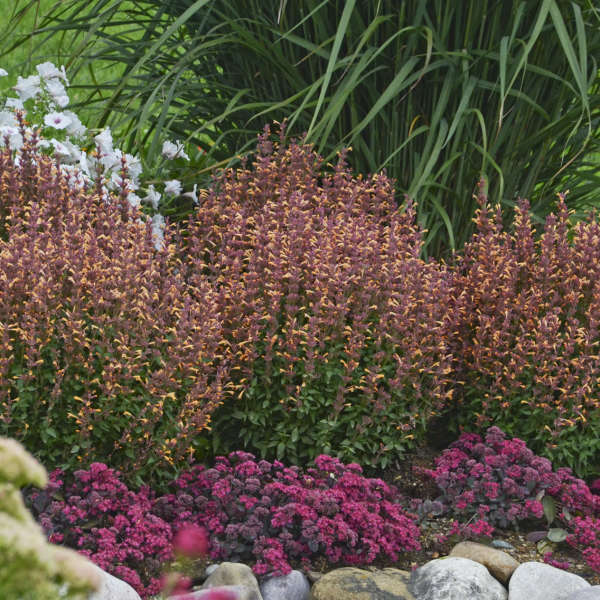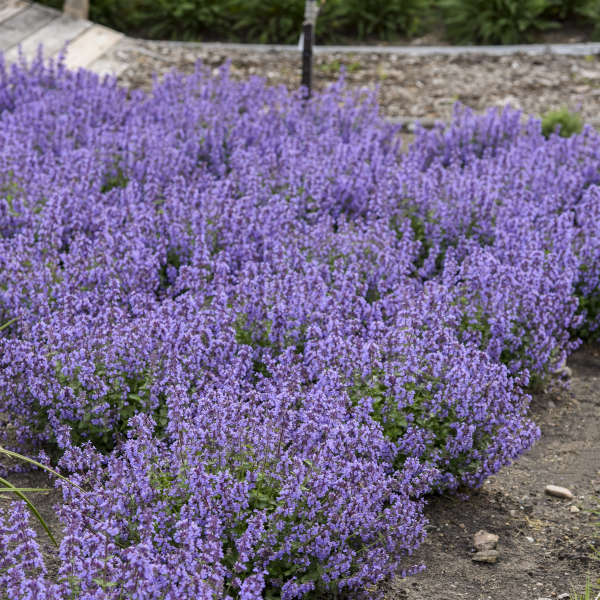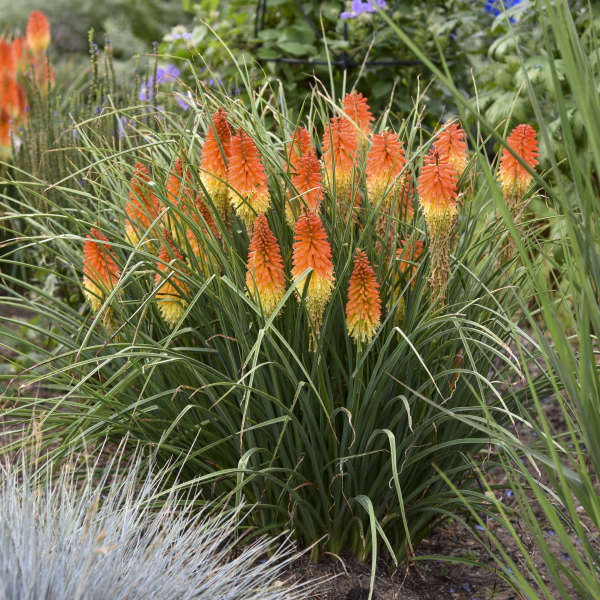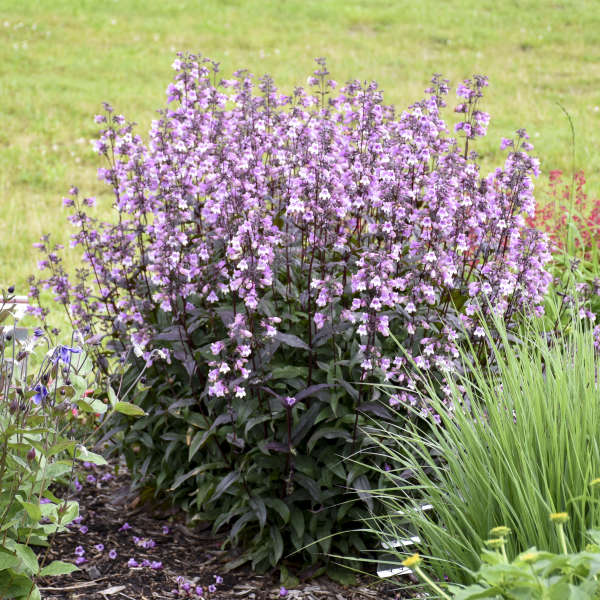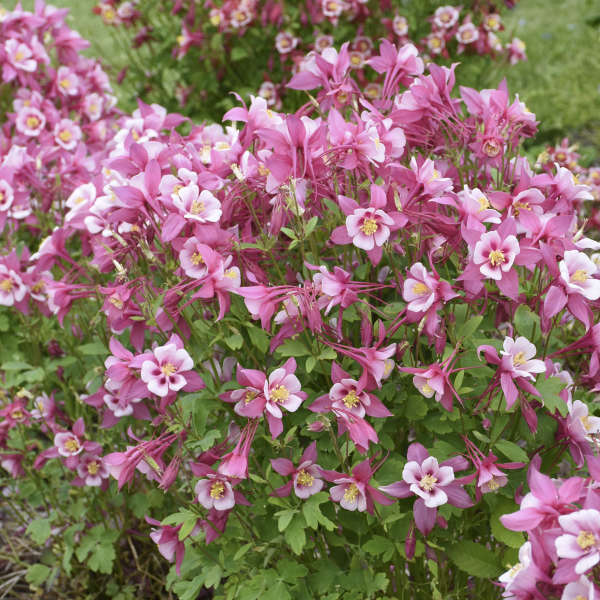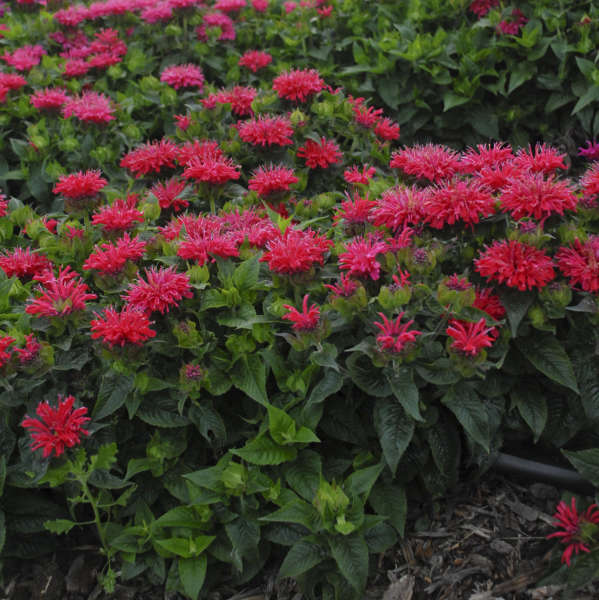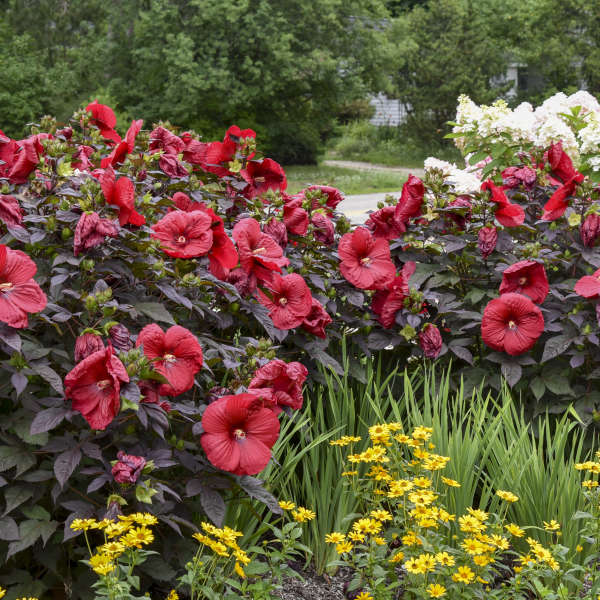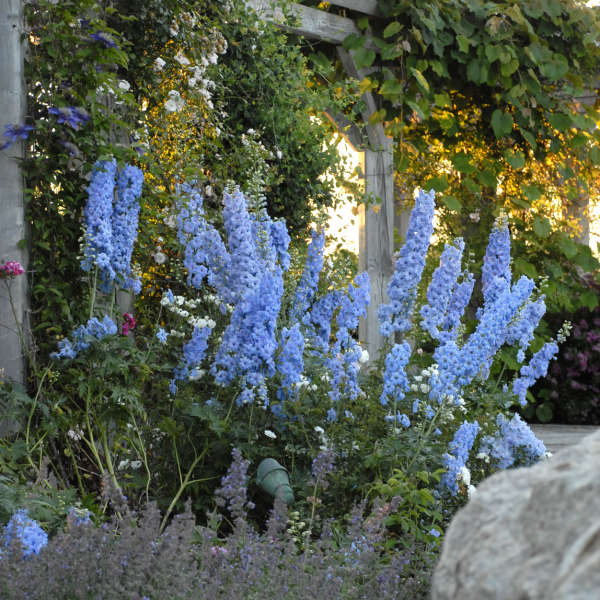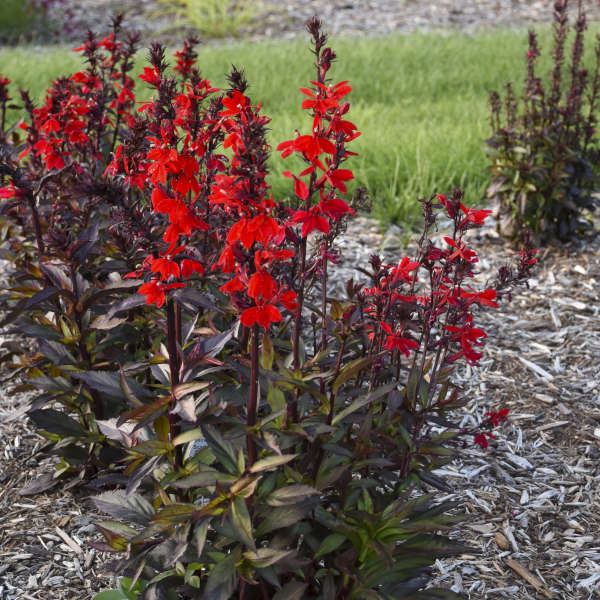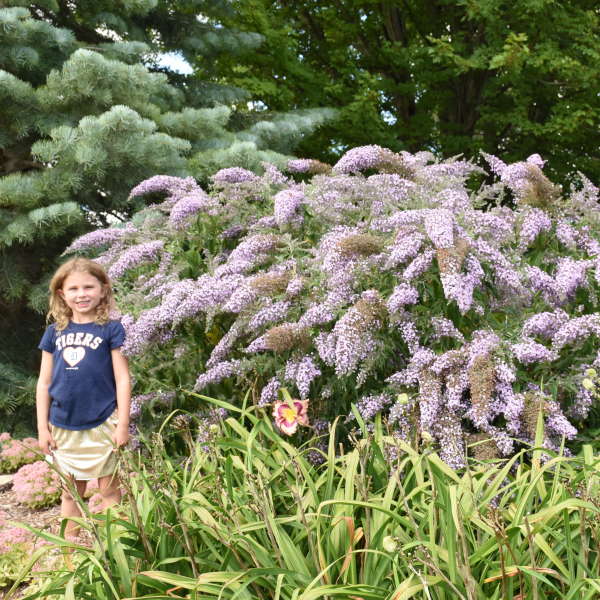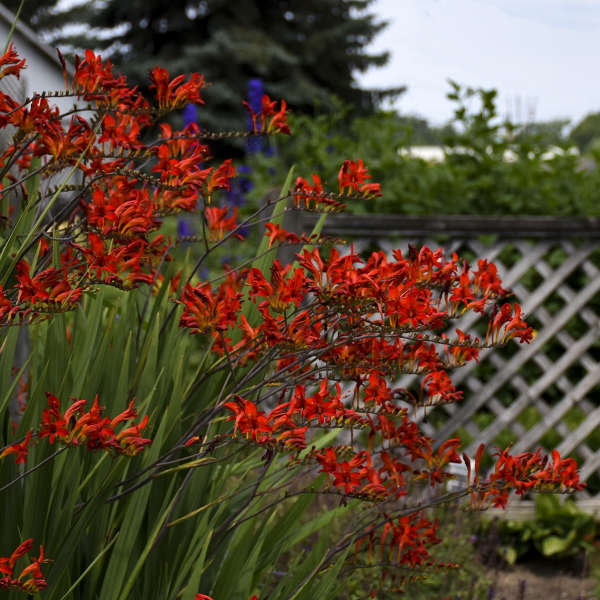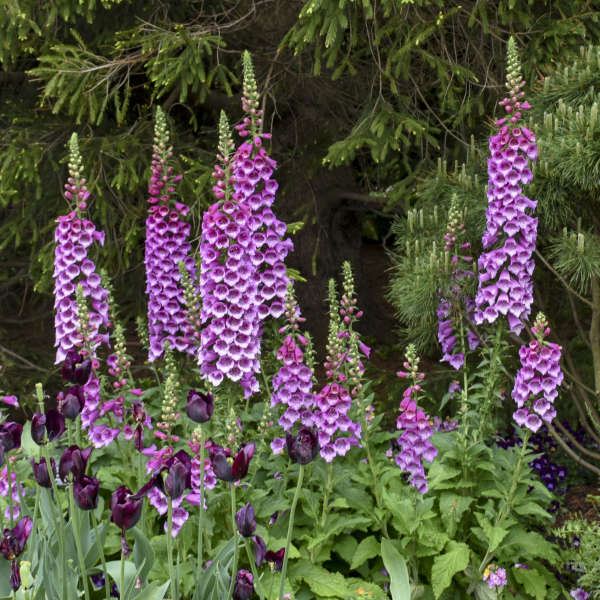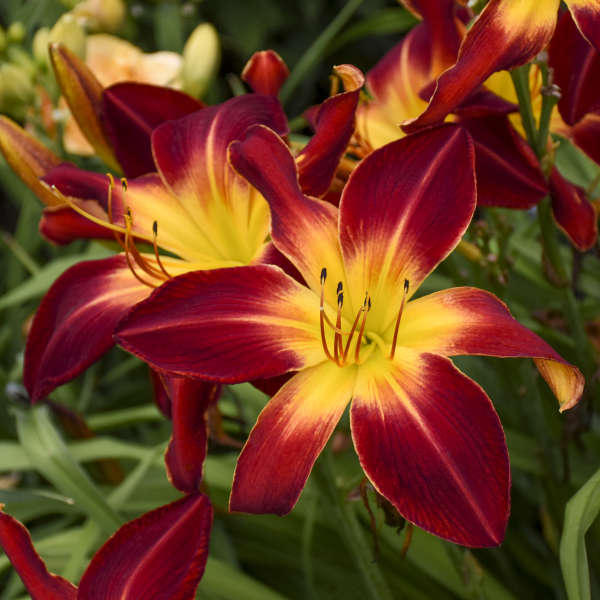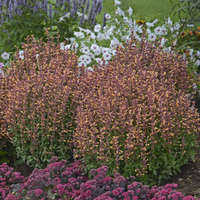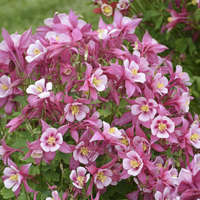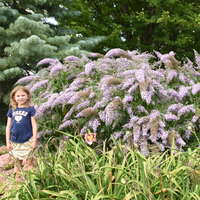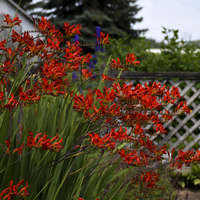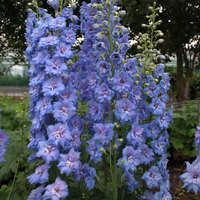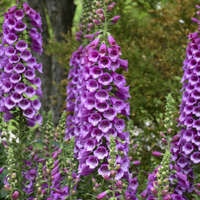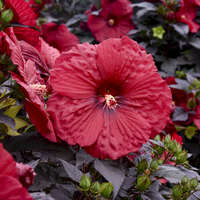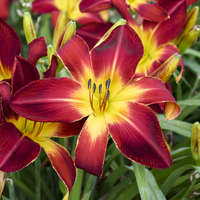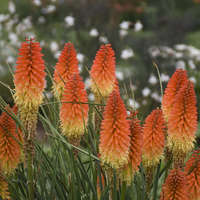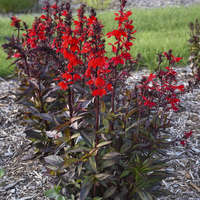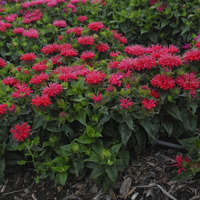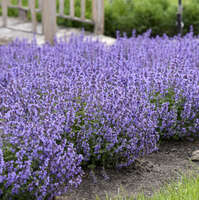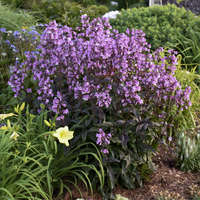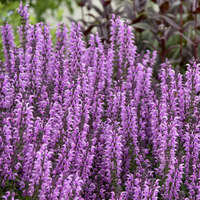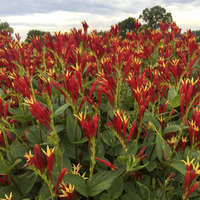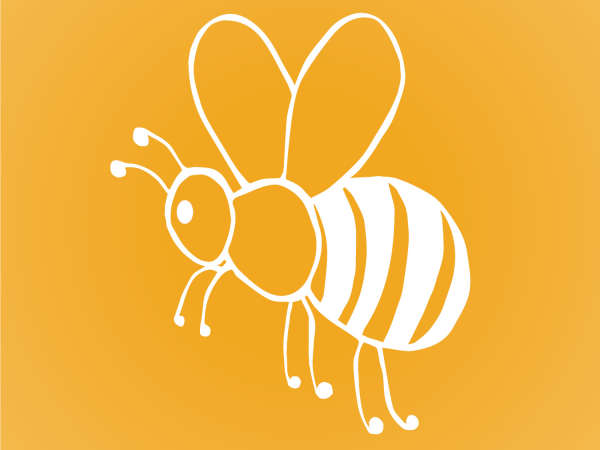15 Perennials that Attract Hummingbirds
1 of 16
Tips to Draw in Hummingbirds
Hummingbirds can visit over 1,000 flowers per hour. Red is one of their favorite flower colors, with pink, orange, yellow, and blue also in the mix. White flowers are the least likely to attract birds. Here are 15 plants you can put in your yard that they are likely to visit.
2 of 16
Spigelia (Indian Pinks)
Spigelia is a very versatile perennial-it grows naturally in either sun or shade. This perennial can be found growing in the wild in woodlands and along streambanks throughout the Eastern United States. It's wildly popular among wildflower enthusiasts and highly sought after.
Variety Pictured: Spigelia marilandica 'Little Redhead'
Height: 24-28" | Zones: 5b-9 | Full Sun to Part Shade
Learn More3 of 16
Salvia (Perennial Salvia, Garden Sage)
Salvia is a staple item for every sunny garden. It asks little more than sunshine and a little drink every once in a while in return for producing a bountiful mass of colorful flower spires from late spring into early summer. It forms a uniform, rounded clump of aromatic, rugose green foliage that looks nice all season long and is not enjoyed by rabbits or deer.
Variety Pictured: Salvia COLOR SPIRES® 'Back to the Fuchsia'
Height: 22-24" | Zones: 3-8 | Full Sun
Learn More

4 of 16
Agastache (Anise Hyssop)
Agastache are well-adapted to thrive in dry soils and is right at home in rock gardens and xeric container plantings where it will attract hummingbirds, butterflies, and honeybees. This is one of the easiest perennials to grow.
Variety Pictured: Agastache 'Peachie Keen'
Height: 20-24" | Zones: 6-9 | Full Sun
Learn More
5 of 16
Nepeta (Catmint)
When Nepeta's stems are broken, they release an aroma into the air that tends to attract cats, thus its common name, Catmint.
Variety Pictured: Nepeta 'Cat's Pajamas'
Height: 12-14" | Zones: 3-8 | Full Sun
Learn More

6 of 16
Kniphofia (Red Hot Poker)
Commonly called Red Hot Poker or Torch Lily for their tall flower spikes. These South Africa natives offer tremendous garden value by combining grass-like foliage with tall flower scapes. An excellent perennial for the middle of the border.
Variety Pictured: Kniphofia PYROMANIA™ 'Backdraft'
Height: 2½-3' | Zones: 5b-9 | Full Sun
Learn More

7 of 16
Penstemon (Beardtongue)
Penstemons are very drought tolerant perennials that are easy to grow and are rarely bothered by insects or diseases. Plant them in full sun and watch as hummingbirds feast on their delicious nectar.
Variety Pictured: Penstemon 'Midnight Masquerade'
Height: 36-40" | Zones: 3-8 | Full Sun
Learn More
8 of 16
Aquilegia (Columbine)
Aquilegia is especially lovely when allowed to naturalize in shady, woodland borders. They also have excellent potential as cut flowers, lasting up to 2 weeks in a vase.
Variety Pictured: Aquilegia caerula KIRIGAMI™ Rose & Pink
Height: 22-24" | Zones: 4-9 | Full to Part Sun
Learn More9 of 16
Monarda (Bee Balm)
Monarda is native to eastern North America, so it is easy to grow and it multiplies quickly. The flowers' sweet nectar attracts scores of hummingbirds, butterflies, and bees to the garden. The aromatic foliage smells like mint when crushed and is often used to flavor teas.
Variety Pictured: Monarda didyma 'Pardon My Cerise'
Height: 14-18" | Zones: 4-8 | Full to Part Sun
Learn More

10 of 16
Hibiscus (Rose Mallow)
These North American native plants bring massive, tropical-looking flowers all the way to zone 4. Although later to emerge than most perennials in spring, these are fast growing plants capable of adding an inch of new growth a day. Excellent at brightening up end of season gardens.
Variety Pictured: Hibiscus SUMMERIFIC® 'Holy Grail'
Height: 4-4½' | Zones: 4-9 | Full to Part Sun
Learn More

11 of 16
Delphinium (Hybrid Bee Delphinium)
Delphinium are a classic garden perennial. These plants are excellent for adding height to small spaces. Their tall flower spikes are easily recognizable when they come into flower in summer. When in flower, the spikes of these plants become heavy and should be staked to avoid toppling over in rough weather, especially taller varieties. Newer hybrids are longer lived than some of the more traditional cultivars.
Variety Pictured: Delphinium 'Blue Lace'
Height: 5-6' | Zones: 3-7 | Full to Part Sun
Learn More12 of 16
Lobelia (Cardinal Flower)
The perfect plant for damp locations such as near ponds or low-lying areas, Lobelia will easily adapt to 'wet feet' but can also tolerate well-drained soils. L. speciosa is more adaptable than other Lobelias to various soil types and moisture levels. If enough moisture is available, it will thrive in the sun. In drier soils, it should be planted in part shade.
Variety Pictured: Lobelia speciosa STARSHIP™ Scarlet Bronze Leaf
Height: 22-28" | Zones: 6-10 | Full to Part Sun
Learn More13 of 16
Buddleia (Butterfly Bush)
Butterfly Bushes have certainly earned their place in the garden over the years, and its easy to see why. Just when we need a breath of fresh air in the late summer heat, they happily burst into bloom. At a time when many other plants are already spent, buddleias are just beginning their show. Their passive coloring and texture makes a wonderful backdrop for perennials, and you'll love the butterflies, bees, and hummingbirds that flock to their honey-scented blossoms.
Variety Pictured: Buddleia 'Grand Cascade'
Height: 5½-6' | Zones: 5-10 | Full Sun
Learn More
14 of 16
Crocosmia (Montbretia)
Crocosmia's broad, sword-like leaves are attractive even when the plants are not in bloom and, from a design standpoint, are effective for adding a spiky textured element to the landscape.
Variety Pictured: Crocosmia 'Lucifer'
Height: 36-42" | Zones: 5-9 | Full Sun
Learn More15 of 16
Digitalis (Foxglove)
Digitalis forms large rosettes of downy, green, oblong leaves from which numerous flower spikes emerge. It looks especially nice when planted along fences, at the wood's edge, or in large containers.
Variety Pictured: Digitalis purpurea 'Dalmatian Purple'
Height: 2-3' | Zones: 4-9 | Full to Part Sun
Learn More16 of 16
Hemerocallis (Daylily)
Daylilies can survive many harsh conditions that other plants cannot including: polluted city environments, slopes, poor and dry soils, near pavement that is salted in winter, and under Black Walnut trees (not affected by juglone).
Variety Pictured: Hemerocallis RAINBOW RHYTHM® 'Ruby Spider'
Height: 34" | Zones: 3-9 | Full to Part Sun
Learn More

